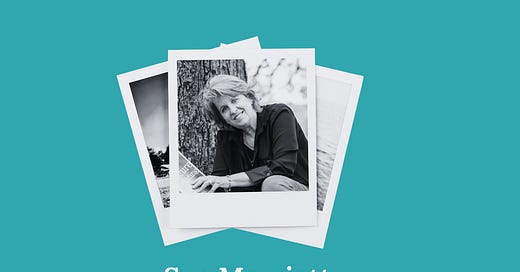When it comes to your relationships, do you bend over backwards to please others in the hope that they’ll love you in return? Do you play it cool and silence your needs in the hope others will respect and admire how reasonable you are? Or, are you able to interact in ways that embody trust and love for yourself and others?
“No matter what happened in your childhood, you can learn to securely relate to yourself and others,” explained Sue Marriott, a clinical social worker and co-author of Secure Relating: Holding Your Own In An Insecure World, when we interviewed her for this podcast. “By discovering how to support your nervous system as it fluctuates between your connection circuit - when you feel secure and want to bond with others - and your protection circuit - when you feel insecure and threatened by others - you can build the self-awareness and skills you need to stay grounded and connected with anyone. We call this ‘secure relating’.”
Sue recommended visualizing the changes in your nervous system along a spectrum of colors, that include:
The Green Zone: This is your ‘secure relating’ sweet spot in the middle of the spectrum where the temperature of your attachment system is just right. Your mind and body feel safe enough to allow your connection circuit to draw you toward exploration, bonding, and belonging. You can relax in your own company or with others, and even if you experience moments of struggle, you can approach your uncomfortable feelings with curiosity, compassion, and care. As a result, you neither abandon yourself or others when things get hard.
The Red Zone: This is the far right of the spectrum where you turn up your attachment system. When your mind and body feel threatened, your protection circuit experiences up-regulation, which intensifies your attention, emotions, and actions. Fearful and anxious that your connections are cooling, you try to heat up your relationships by abandoning your own emotional needs in favor of urgently pleasing or pleading with others, regardless of the costs or consequences.
The Blue Zone: This is the far left of the spectrum where you turn down your attachment system. When your mind and body feel vulnerable, your protection circuit experiences down-regulation, which causes you to avoid emotional connections. Scared and worried that your relationships are demanding too much, you cool your connections by silencing your own needs in favor of protecting yourself and others from honest conversations.
“When you move out of the Green Zone, it’s because your nervous system is doing what it learned was healthy and adaptive when you were growing up,” explained Sue. “So, when you find yourself in the Red or Blue Zones because your protective circuits have been turned on, try not to blame or shame yourself.”
“Instead, see if you can experience what’s happening with openness and curiosity and let your mind and body know you can handle what’s unfolding,” suggested Sue. “This enables your nervous system to move back towards connection in the Green Zone. This is how you can build your ‘secure relating’ capabilities over time.”
Listen to the podcast for more insights and tips on how to relate more securely to yourself and others.
For more of Sue’s wonderful work, be sure to listen to her podcast Therapists Uncensored and grab a copy of Secure Relating: Holding Your Own In An Insecure World.
Please note: We are mindful that ‘girl’ and ‘woman’ are socially constructed ideas of gender that can fall painfully short of defining the fabulous complexity of who we each are. If these words resonate with part of how you have previously or currently identified yourself, we’d love to hear about your lived experiences.
















Share this post